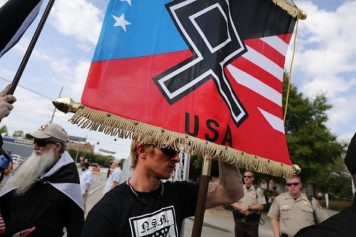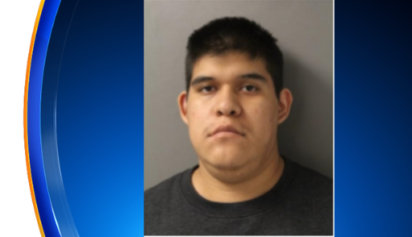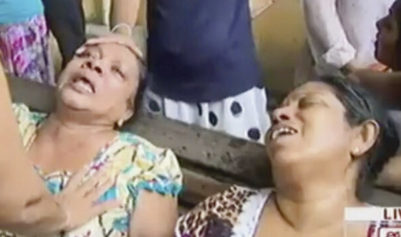As police search for answers and motive in the Boston Marathon bombing that killed 3 people and injured more than 100 yesterday, there were reports that a Saudi man was being questioned by police in connection with the attack.
But as a story in the New York Times makes clear, the man is not a suspect and the primary reason he was being questioned was because of his nationality.
“The Saudi man, who was interviewed at Brigham and Women’s Hospital, had been seen running from the scene of the first explosion, a person briefed on preliminary developments in the investigation said on Monday afternoon,” the Times reported. “A law enforcement official said later Monday that the man was in the United States on a student visa and came under scrutiny because of his injuries, his proximity to the blasts and his nationality — but added that he was not known to federal authorities and that his role in the attack, if any, was unclear.”
In the wake of the carnage on Boylston Street, President Obama addressed the nation and vowed to bring those responsible to justice.
“We will get to the bottom of this,” the president said from the White House. “We will find who did this, and we will find out why they did this. Any responsible individuals, any responsible groups will feel the full weight of justice.”
The president didn’t refer to the bombs as terrorism, and he cautioned people from “jumping to conclusions” based on incomplete information.
But a White House official, speaking on the condition of anonymity afterward, told the Times, “Any event with multiple explosive devices — as this appears to be — is clearly an act of terror, and will be approached as an act of terror.”
“However,” the official added, “we don’t yet know who carried out this attack, and a thorough investigation will have to determine whether it was planned and carried out by a terrorist group, foreign or domestic.”
Nearly three-quarters of the 23,000 runners who participated in the race had already crossed the finish line when a bomb, apparently placed in a garbage can, exploded at 2:50 p.m. in the midst of a crowd of spectators on Boylston Street, just off Copley Square in Boston’s center. Thirteen seconds later, another bomb exploded several hundred feet away.
As many as two additional bombs that had not exploded were found near the end of the 26.2-mile course. Officials said it was a well-coordinated attack, but some called the bombs “crude.” After the blasts, with so many people missing limbs, blood stained the pavement, and huge shards were missing from window panes as high as three stories.
“They just started bringing people in with no limbs,” said runner Tim Davey of Richmond, Va.
He said he and his wife, Lisa, tried to shield their children’s from the gruesome scene inside a medical tent that had been set up to care for fatigued runners, but “they saw a lot.”
“They just kept filling up with more and more casualties,” Lisa Davey said. “Most everybody was conscious. They were very dazed.”
There was no hint of a motive or who may have carried out the bombings and officials in Washington said there was no immediate claim of responsibility.
According to television reports on WBZ-TV late Monday, law enforcement officers were searching an apartment in the Boston suburb of Revere.
Massachusetts State Police confirmed that a search warrant related to the investigation was served Monday night in Revere, but provided no further details. Witnesses saw investigators leaving the Revere house early Tuesday carrying brown paper bags, plastic trash bags and a duffel bag.
Among the three people killed was an 8-year-old boy whose mother and sister were also injured as they waited for his father to finish the race. Area hospitals reported at least 144 people hurt, at least 17 of them critically, with injuries that included broken bones, shrapnel wounds and ruptured eardrums.
“This is something I’ve never seen in my 25 years here … this amount of carnage in the civilian population,” Massachusetts General Hospital’s chief of emergency services Alasdair Conn, told ABC News. “This is what we expect from war.”


